Gov. Laura Kelly Prefers Darkness in Open Records about 277,000 Voter Registration Forms in 2020
Redactions in open records hide information from the public
The response to an open records request to Gov. Laura Kelly’s office about the 277,000 voter registration forms mailed in 2020 shows a lot of darkness.
There are many unanswered questions:
Who and what triggered the meetings starting in 2019 to enable these registrations?
What were the problems with existing voter registration laws?
What solutions were considered and why?
Who participated in the meetings?
Was the Attorney General, the Secretary of State or his Director of Elections, or any legislator invited?
Were other state agencies or officials involved?
This second Kansas Open Records Act (KORA) request was for more information about the Memorandum of Understanding Gov. Kelly signed on Sept. 29, 2021 — long after she enabled hundreds of thousands of voter registration forms to be mailed in the months prior to the Nov. 2020 election. A previous substack article gave details about this MOU.
The follow-up KORA request to the governor’s office asked for: “all communications (written or email) that your office had with Loud Light, Demos, and the ACLU related to this Memorandum of Understanding.”
The redaction darkness blocks much of the information from public view …
Meeting agendas blocked
From the email above: “today’s our 1.5 yr anniversary … I think the traditional gifts are chocolate, champagne, and signed contracts.”
A 1.5-year anniversary on May 19, 2021 suggests initial meetings started on Monday, Nov. 19, 2019. What triggered the initial meetings? Who was there?
When asked, Gov. Kelly’s Chief Counsel, Justin Whitten, indicated the agenda items were redacted pursuant to KSA 45-221(a)(20):
(20) Notes, preliminary drafts, research data in the process of analysis, unfunded grant proposals, memoranda, recommendations or other records in which opinions are expressed or policies or actions are proposed, except that this exemption shall not apply when such records are publicly cited or identified in an open meeting or in an agenda of an open meeting.
Affiliations in email addresses blocked
One email largely left intact
This email gives clues about the meeting attendees and their purpose.
Response to Open Records Request
Here is the PDF with the untouched response from the governor’s chief counsel:
When asked, Justin Whitten explained the number of possible items: “our search located 23 electronic items, of which 17 were calendar invites.”
The items he sent in the PDF above were “email communications and three calendar invites that included information beyond call-in information and time.”
The remaining 14 items “only contain meeting information.”
The subject lines in the emails give clues about the meetings:
Follow up NVRA conversation, 2/3/2020
KS NVRA Check-In, 5/19-21/2021, 6/9/2021
Connecting re: NVRA and online registration/tracking, 2/15-16/2022
The “online registration/tracking” here is perhaps the most interesting since that’s what Blueprint Kansas and Loud Light have been promoting since ~2018.
About the time the 277,000 voter registration forms were mailed in Sept. 2020, Gov. Kelly tweeted on Sept 22, 2020 about a non-government online voter registration site:

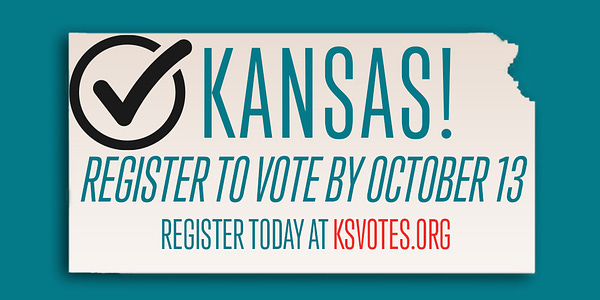
Kansas Republicans objected to Gov. Kelly advocating for using a non-government web site for online voter registration. Republicans on Sept. 23, 2020 had no clue Kelly was mailing 277,000 voter registration forms at the time of her tweet.
On the very day Kansas Republicans objected, Sept. 23, 2020, Demos blind-sided Gov. Kelly in revealing what she had done, but no one made the connection at that time.
The MOU said Loud Light, Demos and the ACLU had “concern about the State’s compliance with the National Voter Registration Act,” which triggered the meetings that started in 2019. Shouldn’t all Kansans be able to see what these concerns were?
My follow-up question to the governor’s office was to look at the initial three electronic calendar entries, likely from 2019, to see what concerns these groups had.
Mr. Whitten’s response from last Thursday: “we will need to review and follow-up with you in the next couple weeks as we look for and review additional documents you’ve requested.”
Known Meeting Attendees
These attendees were identified from the open records:
Governor’s Office
Clay Britton, former Chief Counsel, Governor’s Office.
Justin H Whitten, Chief Counsel, Governor’s Office.
Katherine “Kaydee” Haug, Assistant to Chief Counsel, Governor’s Office.
State Agencies
Rebekah Gaston, Director of Policy and Legislative Affairs, Kansas Department for Children and Families [Why didn’t anyone from DCF sign the MOU?]
Why was no one from the Kansas Department of Health and Environment at the meetings when KDHE Secretary Lee Norman signed the MOU on Oct. 1, 2021?
Demos
Adam Lioz, Senior Counsel, Demos (former); Now Senior Policy Counsel, NAACP Legal Defense and Educational Fund.
Pamela Cataldo, Demos Paralegal / Field Investigator.
Lori Shellenberger, Demos; also: redistricting consultant at Common Cause and advisor at Brennan Center for Justice.
ACLU
Sarah Brannon, Managing Attorney, ACLU Voting Rights Project
Ceridwen Cherry, Staff Attorney, ACLU Voting Rights Project.
Sharon Brett, Legal Director, ACLU Kansas.
Loud Light
Davis Hammet, Loud Light (corporation registered in Florida), President
Is Governor Kelly “in the middle”?
Gov. Kelly:
If you ask me, the middle is the best place to be. The middle is where I work with both parties … Because for me, it’s not about being a Democrat or a Republican, it’s about meeting in the middle to get things done for Kansans.
In her unilateral actions to register 277,000 voters in 2020 was Gov. Kelly working for Kansans or for herself and her party?
Laura Kelly 2022 TV Ad #5, Kansas Governor General Election, "Middle Seat", Aug. 19
Video from Kansas Institute for Politics at Washburn University
Related
President Biden and Kansas Gov. Kelly promote “access to voting” by using government agencies to register voters
A progressive group named Demos developed schemes to register selected voters using federal and state government agencies. President Biden and Kansas Gov. Kelly have embraced those schemes. Biden’s push for voter registration by federal agencies is for elections this year, but Gov. Kelly used Kansas state agencies to register 277,000 voters in time for …
Gov. Kelly's office reveals letter triggering meetings about "Compliance with Federal Voting Laws"
On Tuesday Gov. Laura Kelly’s office sent additional information related to Monday’s article, Gov. Laura Kelly Prefers Darkness in Open Records about 277,000 Voter Registrations in 2020. This new information answered two key questions: Who and what triggered the meetings starting in 2019 to ena…

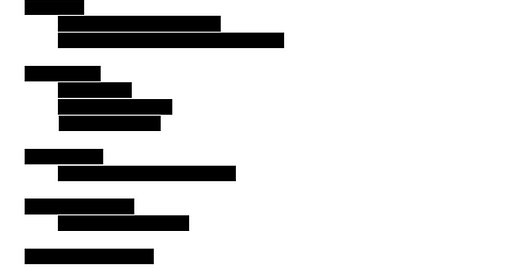




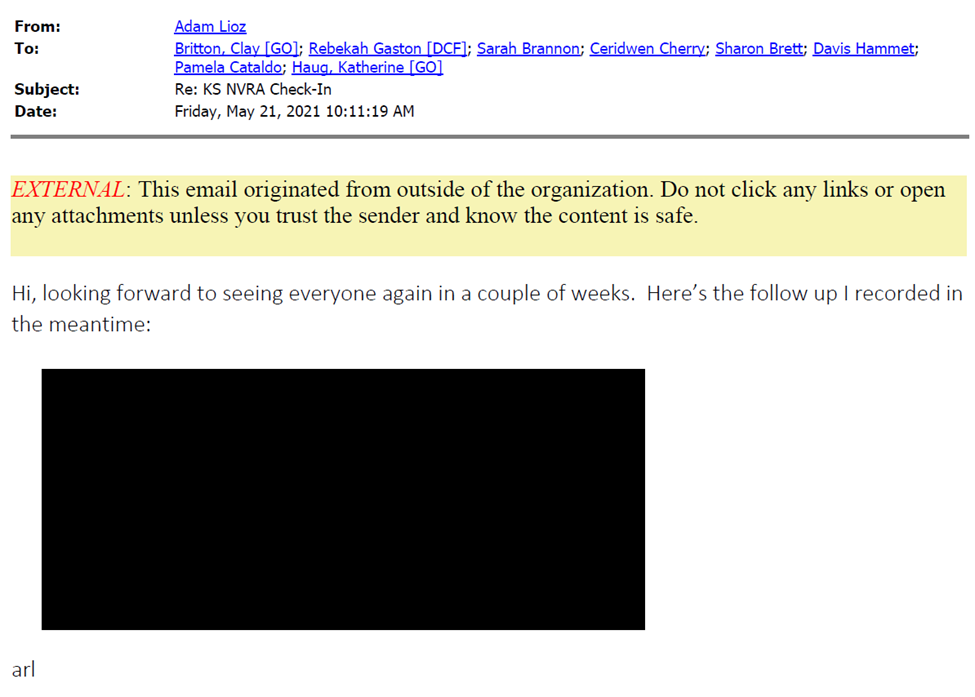
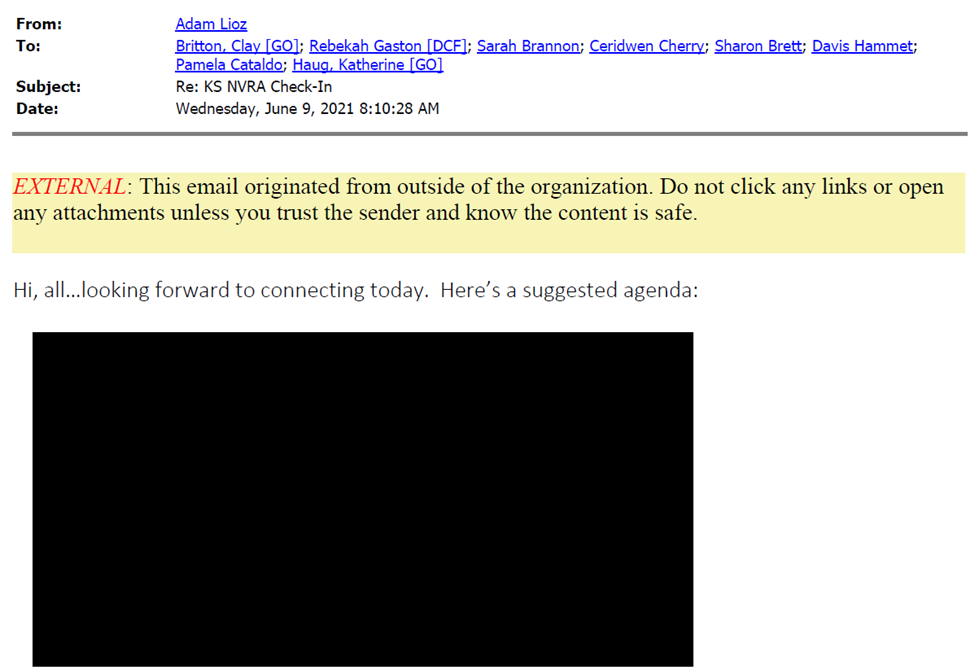


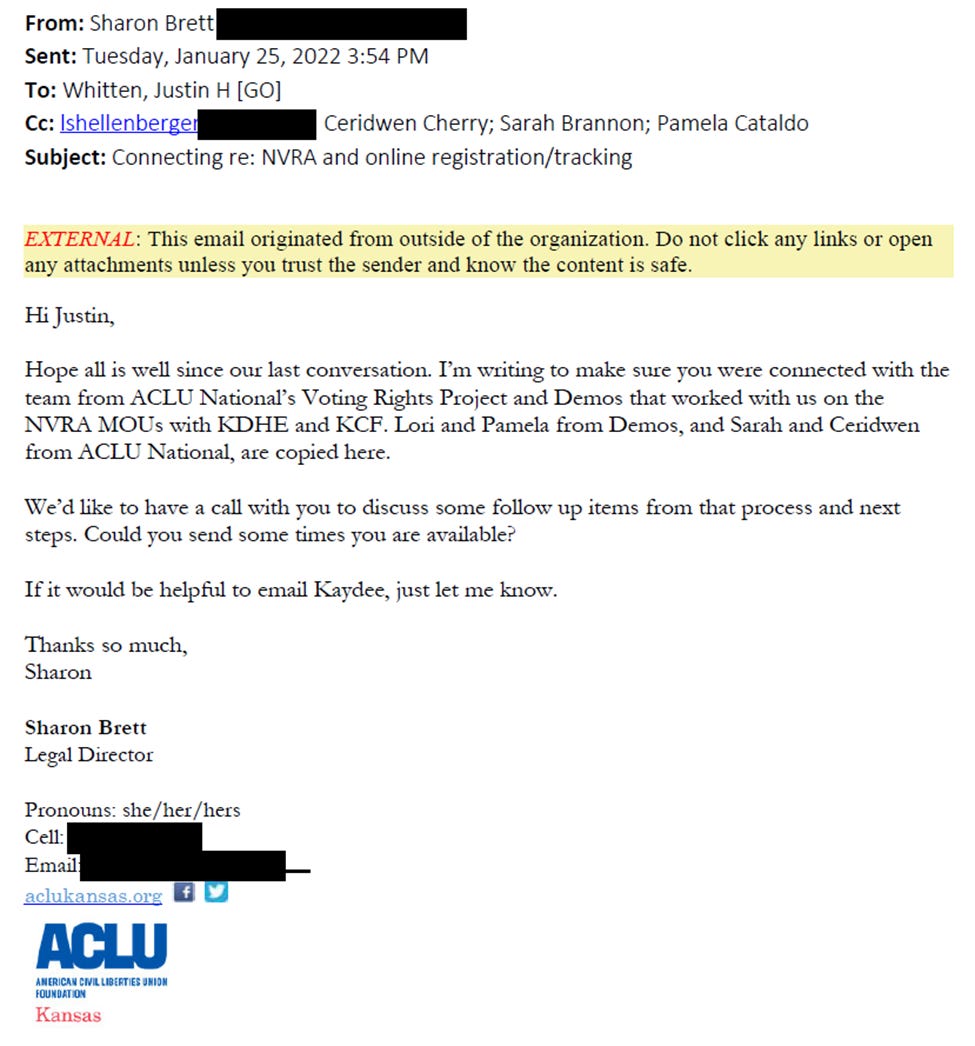
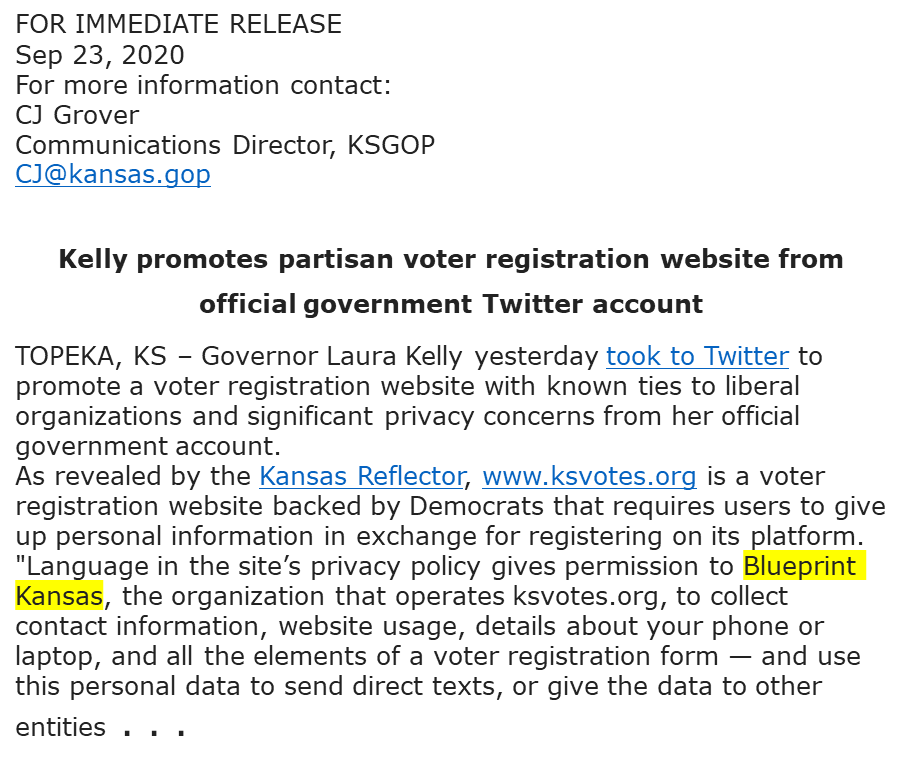
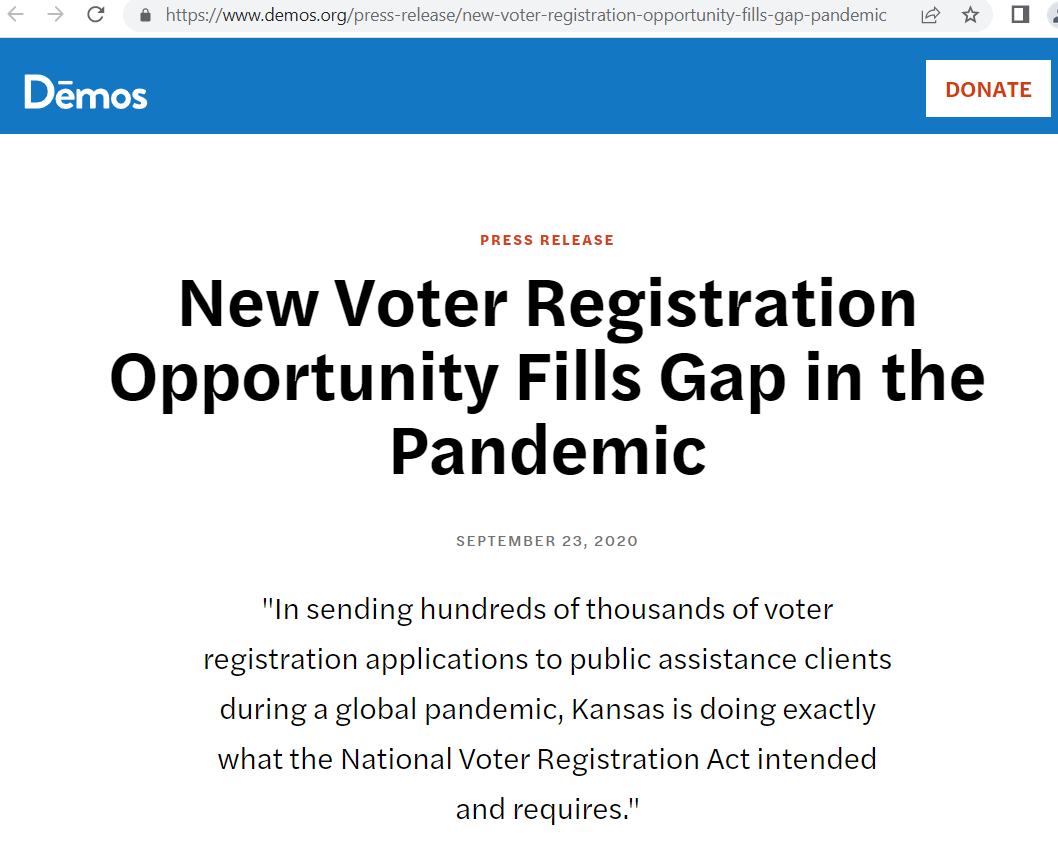
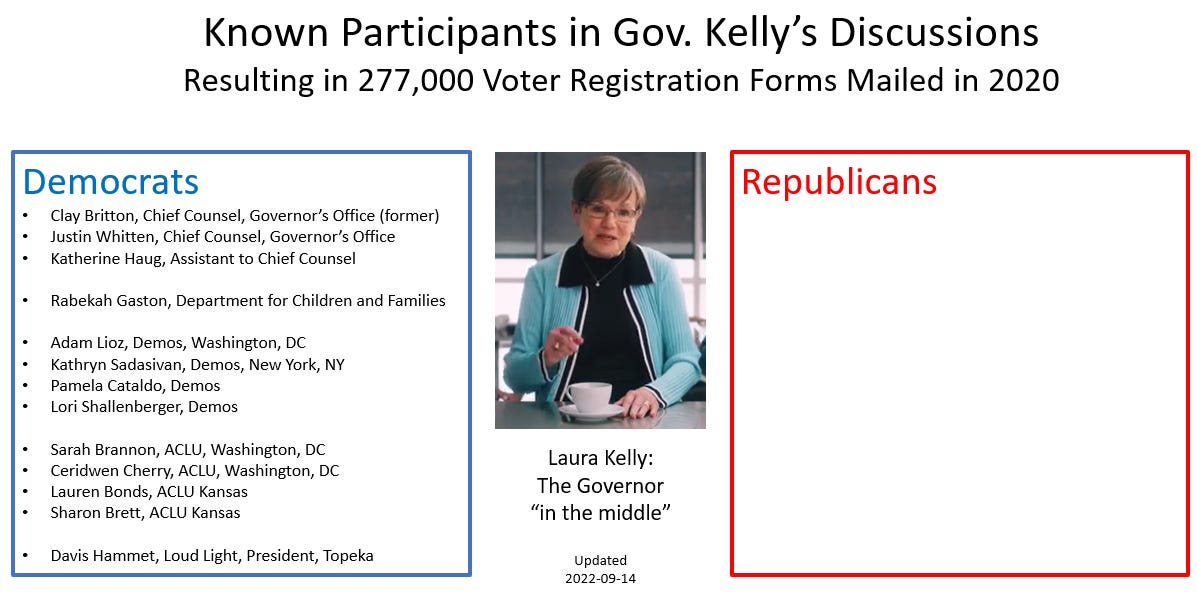
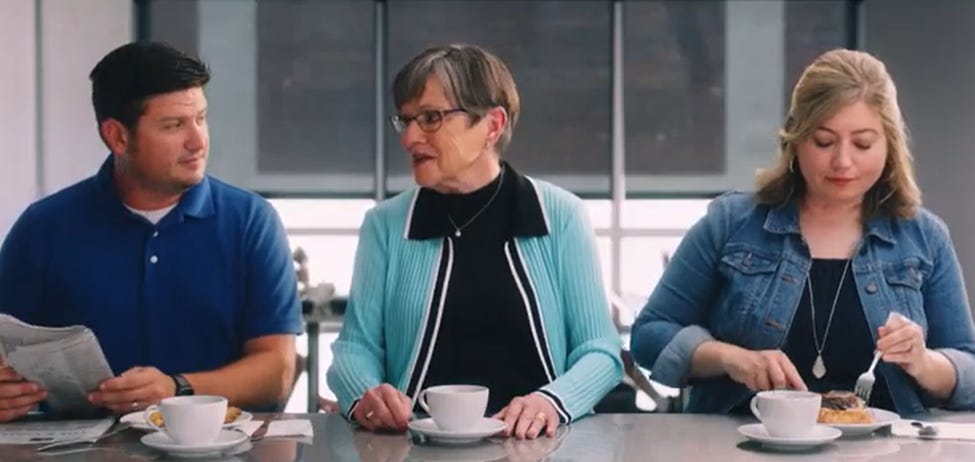
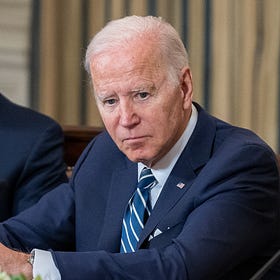
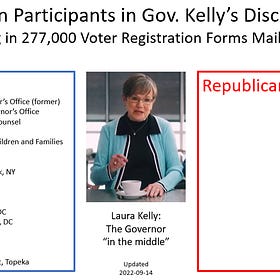
And the Star will write exactly zero words about this.